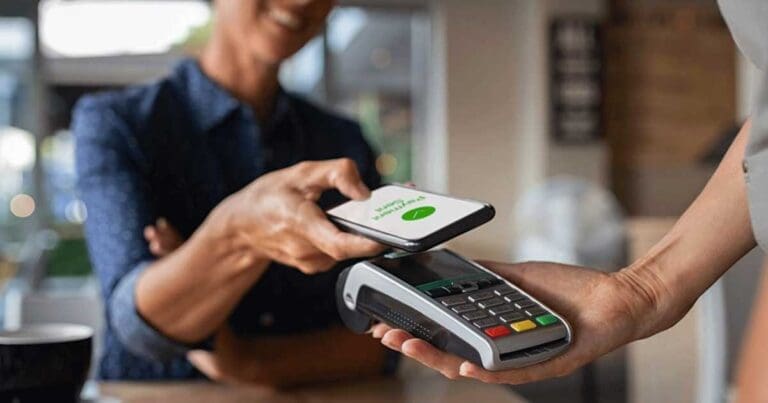
Location-based services, or LBS, is a key component in the ongoing evolution of mobile. It has revolutionized customer service, marketing and more for consumers by delivering everything from basic navigational aid to sophisticated contextual experiences within brick-and-mortar stores. Arguably, the retail sector can do more with LBS than what has been seen to date, but the enterprise has yet to even scratch the surface of its potential and is experiencing a much slower adoption rate than one might expect.
There’s no question that the potential is huge. According to a new report by Juniper Research, the number of smartphones and tablets leveraging location data via apps will near 7.5 billion by 2019, up from 2.8 billion in 2014. Global Industry Analysts peg the overall worldwide market for LBS to be at $21 billion in 2015. And it’s easy to see why. The beauty of using an app incorporating geo-location features over other technologies, such as RFID, is that upfront financial investments do not need to be huge. Coupled with SaaS and cloud business models, it’s now affordable for even small businesses to creatively use LBS.
Most people interested in LBS have heard of retail using it in instances like delivering customer data to sales associates as soon as potential buyers enter the store, such as clothing sizes, past order histories and personalized recommendations. What many aren’t aware of are the exciting and innovative initiatives being put into place that demonstrate how LBS is becoming part of the larger business ecosystem. Here are just a few:
Sports
Geo-location technology has been a game changer for enabling major sports franchises and stadium facilities managers to think outside of the box. Via an app, attendees can “check in” at an event and upgrade seats, get coupons for team merchandise, locate attractions inside the stadium and more. The NBA’s New Jersey Nets have even used a geo-location platform to distribute free game tickets in targeted locations (such as sports bars).
Municipal Infrastructure
The City of Portland, OR created the PDX Reporter, an app that enables citizens to report city infrastructure problems (potholes, etc.) via smartphones. After selecting the issue to report, users can then take a photo, geotag it and send the report to the responsible bureau.
Trade Shows
Trade shows are often a huge investment for organizations, particularly mid-size business. But how can a company compete for attention in the crowd and rise above the noise of the trade show floor? One creative example of how LBS is being used to maximize an investment in a trade show is to use it to push messages to attendees’ smartphones, even if they don’t stop by the booth.
Supply Management
A Tier 1 telecommunications carrier recently piloted the use of LBS to resolve several of its facilities and supplies issues. The service provider wanted to streamline how its territory representatives dealt with retail store maintenance issues and supplies in the field. The lighting in company stores is crucial for attractive (and competitive) handset and mobile device displays, which require the same type/model of bulbs to guarantee the same level and color of light. Knowing whether or not there are enough light bulbs (and the right models) at a particular site to handle burnouts was a manual and costly process. To solve the problem, the carrier developed a micro-location phone app that uses geo-fencing to immediately pull up the store’s supply inventory when the territory representative enters its boundary.
Facility Management
A broad line supplier of maintenance, repair and operating products helped facility managers save time and money through an app with LBS features. The mobile app helps customers find the nearest store location with in-stock information and speeds the purchasing and authorization process.
This app also uses geo to offer facility managers a way to create lists unique to each building and site. Through LBS, the specific product needs for each facility, whether it’s the correct air filter or plumbing part, are easily displayed to ease the ordering and purchasing process. The app even defaults to the appropriate shipping address. It’s a great tool for field technicians or site managers who face the challenge of juggling hundreds of maintenance needs for multiple facilities. A list-building feature helps facilities managers improve productivity and create more consistent orders.
The Future of LBS
There are literally hundreds of possible ways LBS could be used to improve business services, and so we can expect to see greater adoption by organizations outside of retail. For example, within the construction industry, an app could be built that would deliver up-to-date inventory of building supplies at multiple sites. When a mobile phone enters the site boundaries, the app would pull up a list of available materials, flag supplies that are not sufficient to meet immediate construction needs and facilitate ordering.
Another idea for a useful app would be one that assists landlords in managing multiple tenancy locations. The app could store all relevant appliance data (model number, make, etc.) and streamline parts orders or replacement purchases for needed repairs and maintenance.
A couple other uses might be:
1. asset tracking via SIM cards
2. automated workforce management, especially useful in security applications that track personnel locations
3. geo-fencing for routing and navigation or for sending alerts when users move outside of a boundary
One of the more exciting recent developments may be of particular interest to small businesses. The advent of the cloud, added to the fact that sensors are embedded in more and more objects, now makes an automated inventory system more practical for even the smallest organization. Add in access to inventory platforms supplemented by micro-location technology via a mobile app and it’s basically affordable, next-generation RFID for everyone.
But the unlimited potential of LBS comes with cautionary notes. Due to privacy concerns, Congress continues to consider bills that might further restrict how data is obtained from mobile devices. This means that enterprises will need to tighten security and be increasingly vigilant to avoid data breaches in order to protect their brands and mitigate negative perceptions.
Despite the challenges, LBS is a high-value technology that deserves much wider play outside of the retail setting. Organizations should take a look at their internal systems and evaluate whether or not the time is right for developing a mobile app with micro-location features that could improve customer service, trim costs and boost customer loyalty.




